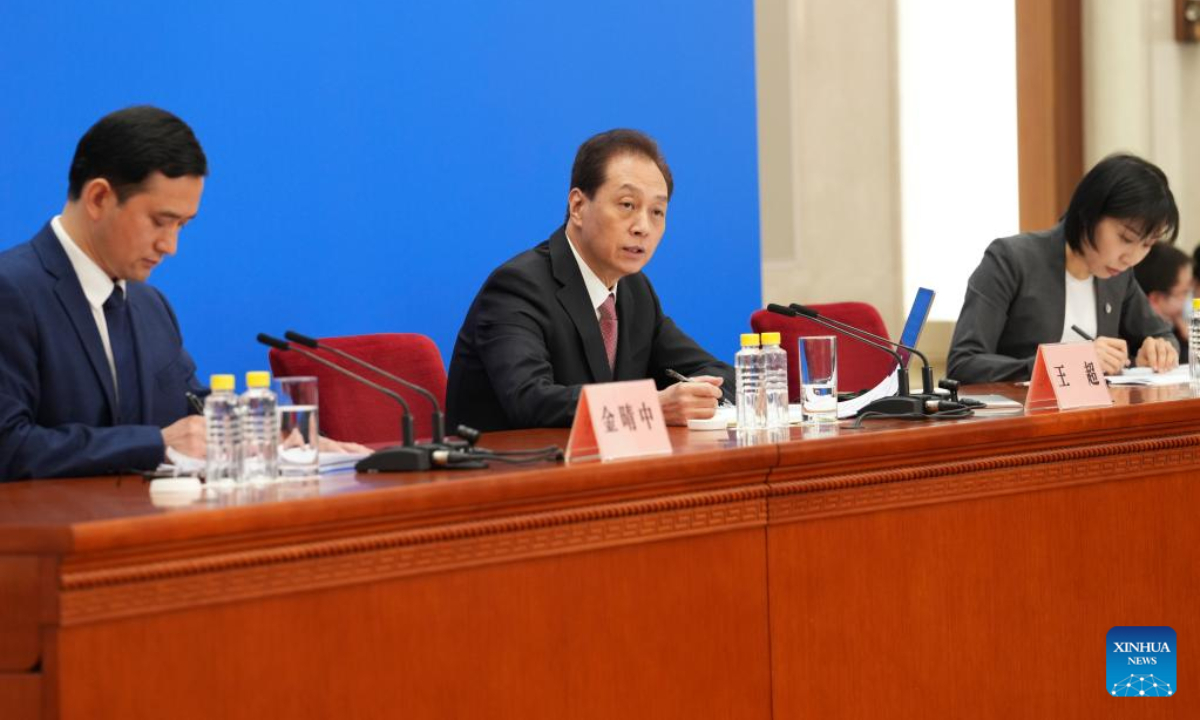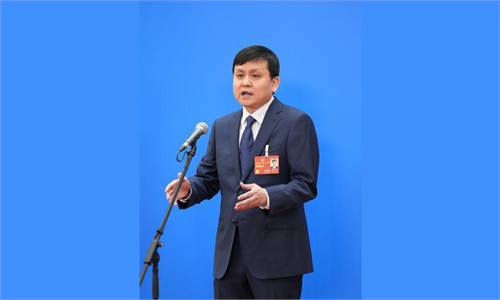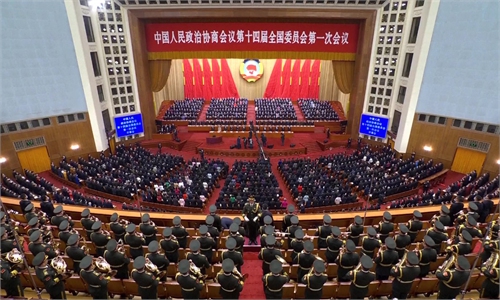China stands against 'long-arm jurisdiction,' focuses on legislation for countermeasures: NPC spokesperson

Wang Chao (C), spokesperson for the first session of the 14th National People's Congress (NPC), attends a press conference at the Great Hall of the People in Beijing, capital of China, March 4, 2023. Photo:Xinhua
China stands firmly against "long-arm jurisdiction" practices, said Wang Chao, spokesperson for the first session of the 14th National People's Congress (NPC), at a press conference on Saturday, stressing that it is totally justifiable and necessary for China to make legislation effort to counter containment, suppression and interference from external forces.
"Some countries have kept abusing the extraterritorial application of their domestic laws in violation of the international law, with the aim of suppressing foreign entities and individuals and serving their own interests," said Wang.
"Such bullying acts are widely criticized in the international community. China stands firmly against such practices," he said.
The spokesperson made the remarks while answering a question from a foreign journalist about China's "Foreign Relations Law," after the NPC made the draft law public in 2022. This law is a basic law in the field of foreign affairs, and it is necessary to make provisions on countermeasures and restrictive measures in principle, Wang said.
Experts said that in recent years the US is getting increasingly unpredictable and aggressive in imposing unfair and unlawful sanctions, tariffs, restrictions and embargos against Chinese institutions and companies, especially those with technological potential and advantages. These hegemonic and hostile acts with pretext of ideology and "national security" will definitely lead to China taking action to protect its own development and interests, and the legislation is a crucial part of these efforts.
"To counter the containment, suppression and interference of its internal affairs, China has introduced a number of laws and regulations including the Anti-Foreign Sanctions Law to block improper extraterritorial application of foreign laws and measures," Wang said.
China's core interests allow no infringement, and its sovereignty and territorial integrity shall be inviolable. China introduces relevant provisions into law to firmly counter the acts that undermine China's sovereignty, security and development interests and harm the lawful rights and interests of Chinese nationals, the spokesperson said. "This is both justifiable and necessary," Wang stressed.
Li Haidong, a professor at the Institute of International Relations at the China Foreign Affairs University, told the Global Times on Sunday that the legislation agenda linked to the "the Foreign Relations Law" reflects that China's policymaking on foreign affairs will be more law-based to better reconcile domestic laws with the international law. The law will become a symbol of the legalization of China's foreign affairs.
Some Western voices said the legislation of "Foreign Relations Law" shows that China's diplomacy will be "more aggressive." Li said such accusation is totally nonsense and ridiculous.
"It was the US diplomacy and foreign actions that are getting increasingly ruthless and shameless, as Washington continually impose 'long-arm jurisdiction' and unilateral sanctions to unfairly attack other countries' companies and even force its allies to arrest other countries' personnel without legal basis. If someone is able to protect itself from US aggression and even able to fight back, then it will surely be accused by the Western voices," he noted.




